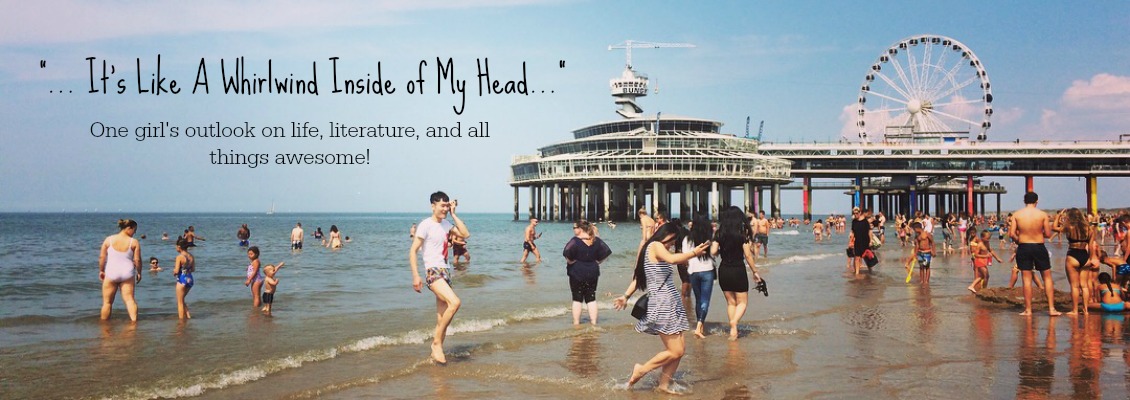
Note: This is one of the few reviews that I am trying to write and post before I start in on things that I have read in 2016. Thank you for your patience!
"'There is nothing hidden that will not be revealed...'
On a brisk autumn day in 1686, eighteen-year-old Nella Oortman arrives in Amsterdam to begin a new life as the wife of illustrious merchant trader Johannes Brandt. But her new home, while splendorous, is not welcoming. Johannes is kind yet distant, always locked in his study or at his warehouse office-- leaving Nella alone with his sister, the sharp-tongued and forbidding Marin.
But Nella's world changes when Johannes presents her with an extraordinary wedding gift: a cabinet-sized replica of their home. To furnish her gift, Nella engages the services of a miniaturist-- an elusive and enigmatic artist whose tiny creations mirror their real-life counterparts in eerie and unexpected ways...
Johannes' gift helps Nella to pierce the closed world of the Brandt household. But as she uncovers its unusual secrets, she begins to understand-- and fear-- the escalating dangers that await them all. In this repressively pious society where gold is worshiped second only to God, to be different is a threat to the moral fabric of society, and not even a man as rich as Johannes is safe. Only one person seems to see the fate that awaits them. Is the miniaturist the key to their salvation... or the architect of their destruction?
Enchanting, beautiful, and exquisitely suspenseful, The Miniaturist is a magnificent story of love and obsession, betrayal and retribution, appearance and truth."
I have been looking for more books that take place in the Netherlands or at least are about the Dutch. When I heard about this book, I was so excited, especially after taking a Dutch history class and learning more about this time period, when the Dutch East India Trading Company was basically the center of the Netherlands' rise to economic power during the Golden Age.
I loved walking through Amsterdam with the main character, Nella, because even though we were in Amsterdam at very different times, I still managed to recognize some places and I could kind of imagine where in the city she was. I knew where the old city hall was because I walked through it with my French sister Marie when she came to visit me. I know what the canals look like and I miss them, even just a little bit, every single day. This was a very nostalgic read for me, if you can't tell.
There were a couple parts of this story that just jumped out and surprised me. Since this is a blog where I'm not very good about hiding spoilers (books are meant to be talked about), you've been warned...
I didn't expect Nella's husband to be gay, but I was so drawn in once Nella's life possessed this amount of danger and adventure (because otherwise she didn't do very much... women who married into families like the one she married into didn't have to do a lot during this time). I knew that it wasn't seen as a good thing to be gay, but I don't think I fully realized just how dangerous it was. For the person who is gay, you can be killed and for the family, you're severely disgraced. But it was scary how Johannes' sister, Marin, pulled Nella aside and told her that she could tell absolutely no one and that they had known about Johannes even before he and Nella were married. They wanted to provide her a comfortable life so that Johannes could be spared. That's how desperate life was for gay and lesbian people. It's shocking, though not surprising, if that makes sense.
Race relations were another tense area of this book. I think what surprises me about the areas of race and sexuality in this book is that I'm seeing how these people are treated as opposed to being told that "This is how black/gay people were treated at this time." It's like being a witness, even though the story is fictional. Being a witness is scary, to say the least. Towards the end of the book, we find out that Marin is pregnant (astonishingly, she was able to hide her entire pregnancy... I don't understand...) and when she gives birth, it's clear that of the people the family knows there's only one potential father: Otto, the manservant who happens to be black. He is no where to be seen at the end of the novel because it's not allowed for him to have any kind of intimacy, especially sexual intimacy, with a white woman. It's dangerous for him to be around. And I think that that really hit home with me too, seeing and in a way being part of the environment that was so dangerous for him. Not much has changed...
This is a book that I can't wait to find and put on my personal shelf (if I ever find the space to do so).
I give 'The Miniaturist':
Thanks for Reading!
--Jude



